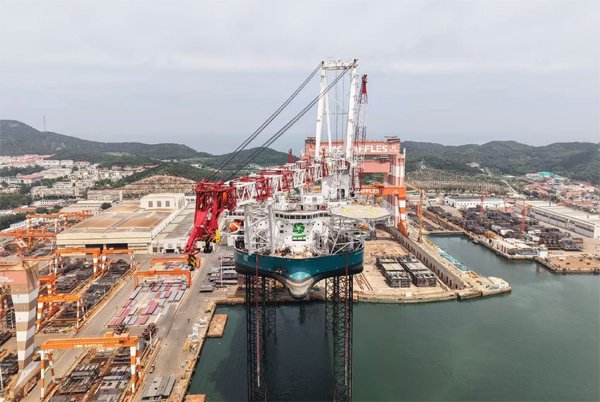
NEW DELHI : Recognizing the strategic and economic importance of the maritime sector, the Union Cabinet, chaired by Prime Minister Shri Narendra Modi, on Wednesday approved a comprehensive package of Rs.69,725 crore to revitalize India’s shipbuilding and maritime ecosystem. The package introduces a four-pillar approach designed to strengthen domestic capacity, improve long-term financing, promote greenfield and brownfield shipyard development, enhance technical capabilities and skilling, and implement legal, taxation, and policy reforms to create a robust maritime infrastructure.
Under this package, the Shipbuilding Financial Assistance Scheme (SBFAS) will be extended until 31 March 2036 with a total corpus of Rs.24,736 crore. The scheme aims to incentivize ship building in India and includes a Shipbreaking Credit Note with an allocation of Rs.4,001 crore. A National Shipbuilding Mission will also be established to oversee the implementation of all initiatives.
The overall package is expected to unlock 4.5 million Gross Tonnage of shipbuilding capacity, generate nearly 30 lakh jobs, and attract investments of approximately Rs.4.5 lakh crore into India’s maritime sector. Beyond its economic impact, the initiative will strengthen national, energy, and food security by bringing resilience to critical supply chains and maritime routes. It will also reinforce India’s geopolitical resilience and strategic self-reliance, advancing the vision of Aatmanirbhar Bharat and positioning India as a competitive force in global shipping and shipbuilding.
India has a long and illustrious maritime history, with centuries of trade and seafaring that connected the subcontinent to the world. Today, the maritime sector remains a backbone of the Indian economy, supporting nearly 95% of the nation’s trade by volume and 70% by value. At its core lies shipbuilding, often described as the “mother of heavy engineering,” which not only contributes significantly to employment and investment but also enhances national security, strategic independence, and the resilience of trade and energy supply chains.



